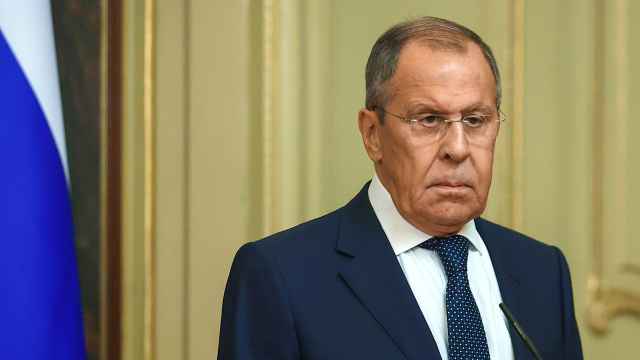Russia on Friday declared the acclaimed novelist Lyudmila Ulitskaya a "foreign agent" for opposing the war in Ukraine and allegedly promoting LGBTQ+ "propaganda."
The 81-year-old literary icon, who lives in exile, began protesting the Kremlin's authoritarian tendencies in the Soviet era and is a fierce critic of President Vladimir Putin.
Ulitskaya "opposed the special military operation in Ukraine" and "carried out propaganda of LGBT relations," Russia's Justice Ministry gave as the reason for her listing.
Already a longtime favorite for the Nobel Prize in literature, she joins a long line of Russian cultural figures — including writer Boris Akunin — shunned by the Kremlin.
Russia applies the term "foreign agent" to people it sees as traitors and enemies of the state, and requires all those labeled to mark their publications with a warning.
Ulitskaya, a trained biologist, was born in central Russia in 1943 when the U.S.S.R. was in the throes of World War II. She has authored 22 volumes including plays and children's tales.
Her best-seller "Daniel Stein, Interpreter," published in 2006 and translated into more than two dozen languages, is based on the real story of a Polish Jew who becomes a Catholic priest.
"The Kukotsky Case," her 2001 novel that traces the lives of a doctor and his family over several decades of the Soviet era, won the Russian Booker Prize in 2001.
When Putin ordered his military operation in Ukraine, Ulitskaya left for Germany, predicting that the "senseless" conflict would be "catastrophic" for Russia.
Many prominent cultural figures have fled Russia since it launched its invasion of Ukraine, and those who have stayed face strict censorship or court proceedings.
A Message from The Moscow Times:
Dear readers,
We are facing unprecedented challenges. Russia's Prosecutor General's Office has designated The Moscow Times as an "undesirable" organization, criminalizing our work and putting our staff at risk of prosecution. This follows our earlier unjust labeling as a "foreign agent."
These actions are direct attempts to silence independent journalism in Russia. The authorities claim our work "discredits the decisions of the Russian leadership." We see things differently: we strive to provide accurate, unbiased reporting on Russia.
We, the journalists of The Moscow Times, refuse to be silenced. But to continue our work, we need your help.
Your support, no matter how small, makes a world of difference. If you can, please support us monthly starting from just $2. It's quick to set up, and every contribution makes a significant impact.
By supporting The Moscow Times, you're defending open, independent journalism in the face of repression. Thank you for standing with us.
Remind me later.






